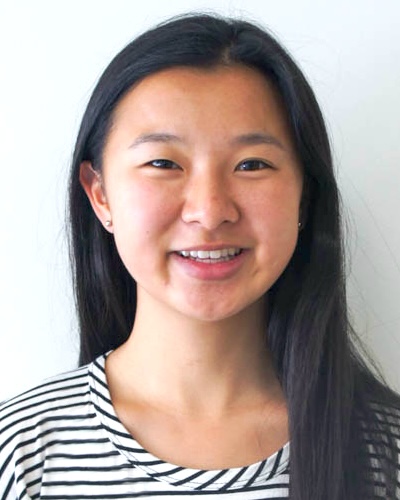The A-Z’s of USC OT: Part I

February 24, 2021
by Bethany
Admissions Diversity Externships Getting Involved International
As a Bachelor’s-to-Master’s student, I have been a part of the USC OT community for nearly five years. While learning to call this school home, I have realized that I am so lucky to be where I am. I’ve decided to compile an A-Z list of USC OT attributes that drew me to the program and that I learned as a part of the Trojan Family.
Area — USC is located in the wonderful California city of Los Angeles. Not only can you find a lot of OT volunteer opportunities nearby if you want to check out OT, but you can also drive to the beach, hike to the Hollywood sign, or check out amazing eateries.
Beyond classes — Outside of classes, there are a multitude of student organizations and groups that allow students to encourage growth within the school and also growth in the community we serve.
Creativity — Creativity is so integral to occupational therapy that we have an entire Foundations course on creativity. Not only do we look at crafts occupations, but we use creativity to find new ways to approach and solve problems with engaging in these occupations.
Diversity — Our division places a high value on representation from people of all different backgrounds. Whether it be looking at ethic diversity in admissions, gender representation in OT, or even diversity in ages and stages of life, our students and faculty are open to difficult and perspective-building discussions.
Early Level II — Some OT schools have classwork first and both Level II Fieldwork placements after. But we have our first placement the summer in between academic years, getting to bring our fieldwork experience into our final year of classes to build on that new understanding.
Finances — Funding school can be a difficult discussion. The division offers their own scholarships and financial aid resources. In addition, USC has resources for their students and scholarships through the university itself and other organizations.
Global — Students can expand their global perspective by planning an externship abroad. Or we can increase our understanding of OT around the world through our very own Global Initiatives program!
Hands-on — Whether in labs or in fieldwork or even in practice activities in lectures, I have been grateful for learning-by-doing opportunities. Now in fieldwork, I can see how small activities that we may have done in class can be used with my clients.
Interdisciplinary — We study how OT fits with other health professions, such as PT and social work. Students can also take advantage of other incredible programs at USC by taking electives in other schools, such as the Davis School of Gerontology, the Marshall School of Business, or the Rossier School of Education.
Jobs — There are good job prospects in OT, as it is a quickly growing field. You can also pick up a student worker position while in school, like my job as a student ambassador.
Knowledgeable professors — Our professors are open to talking about coursework and the OT field outside the classroom. They work with us to make sure that we can get a full experience, working with different accommodations needed and through different life circumstances.
Lifestyle Redesign — Lifestyle Redesign was created at USC. Students can both learn about a unique framework and experience it, too. Our faculty practice offers services to students who can experience Lifestyle Redesign and its impact on their lives and occupations as students.
Mental health — This is an area of OT that is not often given enough space, but here, it has its own immersion. After this class, I was more open to the idea of mental health and how occupational therapists can impact mental health and therefore performance in occupations.
New perspectives — In our classes, we discuss how different people would approach different cases and how our various perspectives can be expanded through others’ experiences. We learn from each other to expand our own creative thinking.
Stay tuned for Part II. 😊
⋯
⋯





